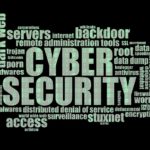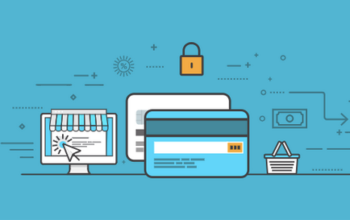In an increasingly interconnected world, cybersecurity is a critical concern for individuals, businesses, and governments. As technology evolves, so do the tactics of cybercriminals. To help you protect your digital assets and sensitive information, we’ve gathered ten essential cybersecurity tips and advice from experts like Adam McManus. These insights will empower you to safeguard your digital life and ensure a safer online experience.
Keep Your Software Updated
Experts unanimously emphasize the importance of keeping your software and operating systems up-to-date. Software updates often include patches for known vulnerabilities, helping to safeguard your system against cyber threats.
Use Strong, Unique Passwords
Cybersecurity experts recommend creating complex passwords that combine letters, numbers, and symbols. Avoid using easily guessable information like birthdays or names. Furthermore, use a unique password for each online account to prevent a single breach from compromising multiple accounts.
Enable Two-Factor Authentication (2FA)
Two-factor authentication adds an extra layer of security by requiring a password and a secondary verification method, such as a text message or a mobile app, to access your accounts. Experts highly recommend thwarting unauthorized access.
Educate Yourself and Your Team
Experts stress the importance of educating yourself and your employees about cybersecurity best practices. Regular training sessions can help users recognize phishing attempts and other common threats, reducing the risk of falling victim to cyberattacks.
Backup Your Data Regularly
Regular data backups are crucial for minimizing the impact of ransomware attacks and data loss. Experts advise creating automated backups of important files to a secure, offline location.
Use Antivirus Software
Antivirus software remains a fundamental cybersecurity tool. Experts recommend using reputable antivirus programs to detect and prevent malware and other malicious software. In addition to these practices, implementing a solution like Cyware Security Incident Response can significantly enhance your ability to quickly and effectively respond to any cybersecurity incidents, ensuring a swift recovery and minimal impact.
Be Cautious with Email Attachments and Links
Cybersecurity experts warn against opening email attachments or clicking links from unknown or suspicious sources. Phishing emails are a common attack vector, and being cautious can prevent malware from infecting your system.
Secure Your Wi-Fi Network
Experts advise securing your Wi-Fi network with a strong, unique password. Change the default router login credentials, enable WPA3 encryption, and regularly update your router’s firmware to keep your network secure.
Monitor Your Financial Accounts
Cybersecurity experts recommend frequently checking your financial accounts for any unauthorized transactions. Early detection can help you mitigate the impact of a financial breach.
Sharing too much personal information on social media and other online platforms can make you vulnerable to cyberattacks. Experts recommend being mindful of the data you share and adjusting your privacy settings to restrict access to your personal information.
In today’s digital age, cybersecurity is everyone’s responsibility. Following these essential tips and advice from cybersecurity experts, such as Toronto’s Adam McManus, can go a long way in protecting your digital presence and safeguarding your sensitive information. By staying informed, practicing good cybersecurity hygiene, and being vigilant, you can reduce your risk of falling victim to cyber threats and enjoy a safer online experience. Remember that the cyber landscape constantly evolves so staying updated on the latest threats and best practices is key to maintaining strong digital security.
Related Posts
Hi there! I’m Sethu, your go-to guy for all things tech, travel, internet, movies, and business tips. I love sharing insights and stories that make life more interesting. Let’s explore the world together, one article at a time!











